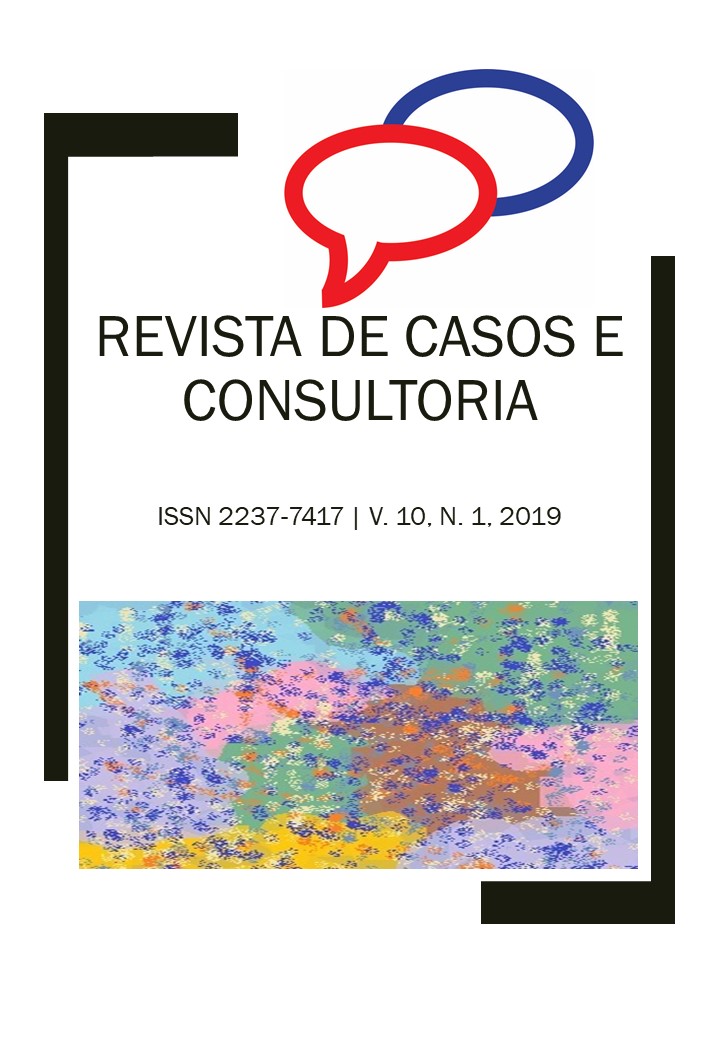EDUCATION 3.0: PRACTICES FOR THE INTRODUCTION OF THE COLLABORATIVE SOCIETY TO EDUCATION
Keywords:
Education 3.0; Cloud Computing; Ubiquity; Collaboration.Abstract
This article aims to analyze the relationship of the circular economy with technological resources within the Society 3.0. Humanity and technology develop concurrently, but high innovative levels are achieved without real implementation in basic aspects. By directing it to the educational aspect we come, then, to Education 3.0. With the intention of disseminating this concept, the present project discusses problematizations and opportunities as well as a model to be followed in order to guide, through the management, institutions and educational centers. Through exploratory bibliographic research, significant results were obtained, demonstrating the importance of digital transformation involving collaboration and communication.
Downloads
References
ANDREWS, Deborah. The circular economy, design thinking and education for sustainability. 2015. 11 p. London South Back University, Londres, 2015. 1. A População Mundial: 40% estão nas redes sociais, diz estudo. Disponível em: <http://cetic.br/tics/educacao/2016/alunos/>. Acesso em: 12 nov. 2018.
BATISTA, Anderson Hernandes. O Perfil do Profissional de Sucesso do Mundo Moderno. 1. ed. [S.l.: s.n.], 2004. 114 p. v. 1. Disponível em: <http://www.andersonhernandes.com.br/wp- content/uploads/2011/12/perfil.pdf>. Acesso em: 23 nov. 2018.
BOPPRÊ, Vinícius. Educação 3.0 é a tecnologia que integra pessoas. 1. Disponível em: <http://porvir.org/educacao-3-0-e-tecnologia-integra-pessoas/>. Acesso em: 09 nov. 2018.
BORGES, Hélder Pereira et al. COMPUTAÇÃO EM NUVEM. 1. ed. [S.l.: s.n.], 2011. 253 p. v. 1. Disponível em: <http://livroaberto.ibict.br/bitstream/1/861/1/COMP UTA%C3%87%C3%83O %20E M%20NUVEM.pdf>. Acesso em: 22 nov. 2018.
BRACELPA - Indústria de celulose e papel brasileira anuncia investimentos. 1. Disponível em: <http://iba.org/pt/noticias/9-conteudo-pt/288-bracelpa-industria-de-celulose-e-papel- brasileira-anuncia-investimentos>. Acesso em: 24 nov. 2018.
CARON, Aline. 8 motivos para usar tecnologia em benefício da educação. 1. Disponível em: <https://www.positivoteceduc.com.br/blog-inovacao-e-tendencias/motivos-para-usar-a- tecnologia-na-educacao/>. Acesso em: 14 out. 2018.
CERVO, Amando L.; BERVIAN, Pedro A.; DA SILVA, Roberto. Metodologia Científica. 6. ed. São Paulo: Pearson Prentice Hall, 2007. 162 p. v. 1.
Economia Circular: Interligação, criação e conservação de valor. 2014. 4 p., 2014. Disponível em: <http://www.igfse.pt/upload/docs/2016/PublicacaoEconomiaCircular.pdf>. Acesso em: 19 out. 2018.
FAVA, Rui. Educação 3.0: Aplicando o PDCA nas instituições de ensino. 1. ed. São Paulo: Saraiva, 2014. 180 p. v. 1.
IDOETA, Paula Adamo. Dez tendências da tecnologia na educação. 1. Disponível em: <http://www.bbc.com/portuguese/noticias/2014/12/141202_tecnologia_educacao_pai>. Acesso em: 07 out. 2018.
KEEBLE, Daniel. The culture of planned obsolescence in technology companies. 2013. 52 p. Bachelor’s thesis (Business Information Technology)-Oulu University of Applied Sciences, 2013. Disponível em: <https://www.theseus.fi/bitstream/handle/10024/55526/Keeble_Daniel.pdf>. Acesso em: 27 out. 2018.
LARROCA, Lilian Martins. O que é Educação 3.0? 1. Disponível em: <https://educacional.cpb.com.br/conteudos/universo-educacao/o-que-e-educacao-3-0/>. Acesso em: 06 fev. 2018.
LEITE, Paulo Roberto. Logística Reversa - Meio Ambiente e Competitividade. 2. ed. São Paulo: Pearson - Prentice Hall, 2009. 256 p.
LENGEL, Jim. Education 3.0: Seven Steps to Better Schools. 1. ed. Nova Iorque: Teachers College Press, 2012. 240 p. v. 1.
LOGÍSTICA Reversa - Meio Ambiente e Competitividade. 2. Disponível em:<http://www.pensamentoverde.com.br/reciclagem/veja-algumas-empresas-que-praticam- logistica-reversa/>. Acesso em: 26 out. 2018.
LUIZ, Marcelo Sabino. Os períodos históricos da Educação no Brasil: da Colônia a Redemocratização. 1. Disponível em: <http://www.partes.com.br/2012/10/08/os-periodos- historicos-da-educacao-no-brasil-da-colonia-a-redemocratizacao/>. Acesso em: 15 fev. 2018.
MARTINS, Petronio Garcia; LAUGENI, Fernando Piero. Administração da Produção. 3. ed. São Paulo: Saraiva, 2015. 576 p. v. 1.
MENDES, Bárbara E. P. et al. Sistema de gestão ambiental do consumo de papel a4 e de produtos de limpeza para a universidade federal de alfenas. 2013. 22 p. Alfenas, Minas Gerais, 2013.

 Português (Brasil)
Português (Brasil) English
English Español (España)
Español (España)